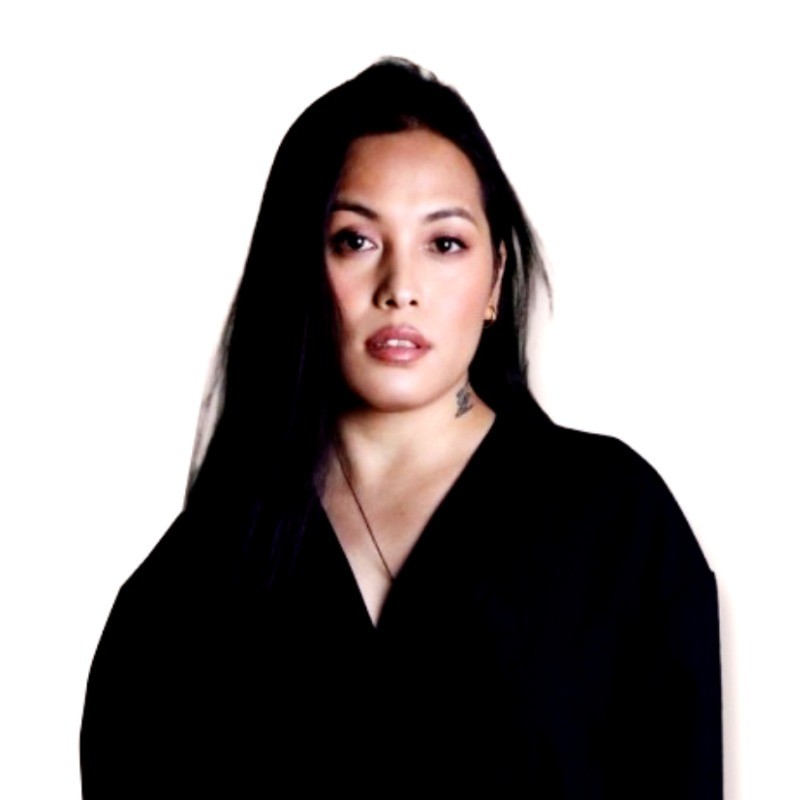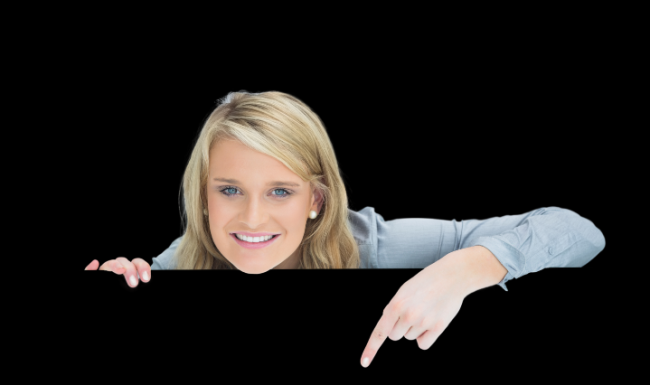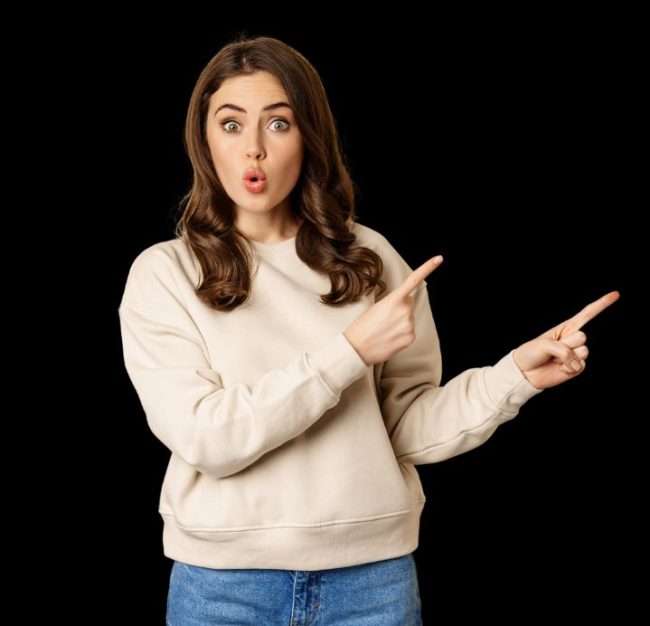In the vibrant world of beauty and fashion, where creativity meets technique, resides a group of individuals who make people look and feel their best – Makeup Artists. They are the wizards of the cosmetic world, breathing life into visions of transformation.
The profession of a Makeup Artist (MUA) is often shrouded in a cloud of glamour and allure, but what lies beneath is a foundation of technical skills, aesthetic understanding, and an unyielding dedication to the craft.
In this comprehensive guide, we delve into the world of makeup artistry. We will explore what a Makeup Artist is, their role, historical evolution, skills needed, the education and training involved, and their varying career paths. We will also touch upon the influence of social media on this profession, a glimpse of industry’s top makeup artists, and the future trends shaping this field
Let’s dive in –
Understanding Makeup Artistry
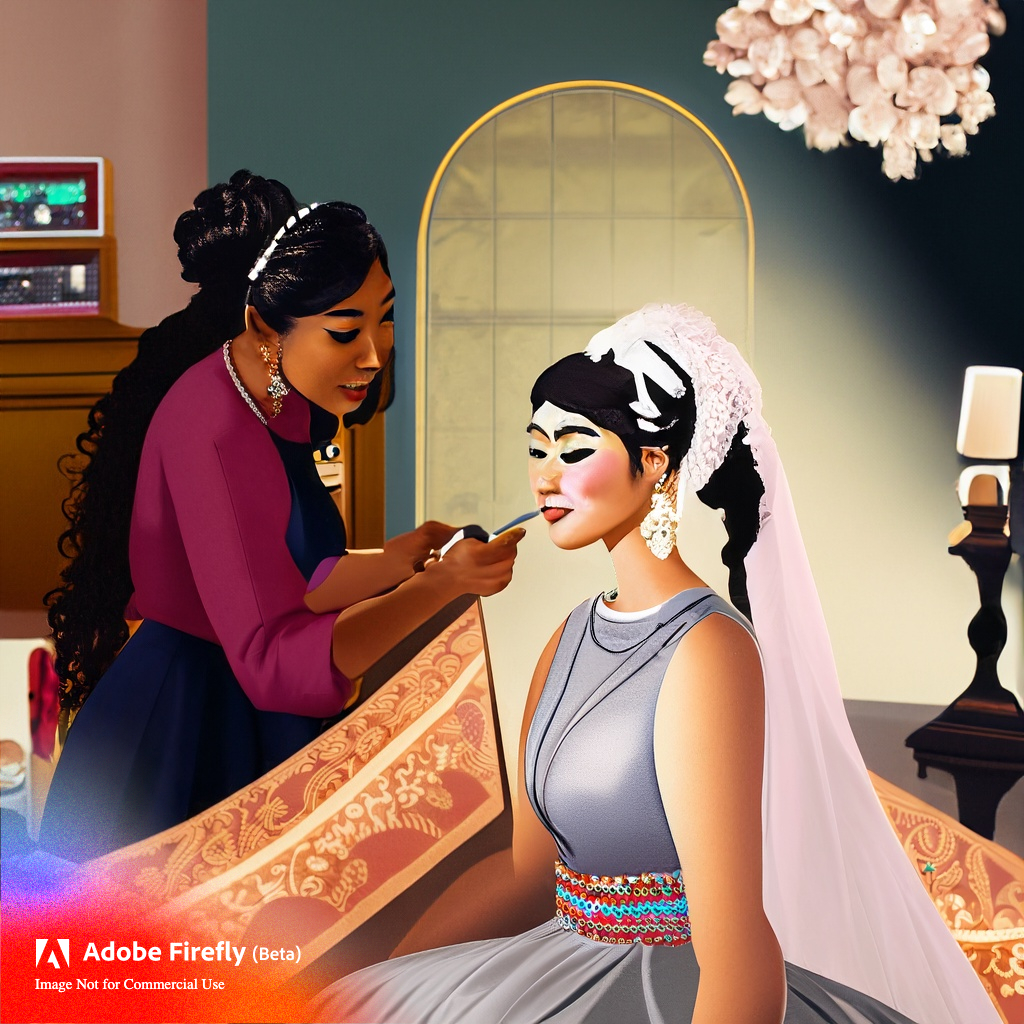
At its core, makeup artistry is about enhancing or altering an individual’s appearance using cosmetic products. Yet, it encompasses much more than simply applying makeup. Let’s break it down:
Definition of a Makeup Artist (MUA)
A Makeup Artist is a professional who utilizes various techniques and products to create a desired facial aesthetic. They have the ability to make someone look glamorous, portray a character, or even age gracefully.
Importance of Makeup Artists in Various Industries
Makeup artists play a crucial role across different sectors, notably:
- Entertainment Industry: Film and TV shows often require makeup artists to create looks that match character profiles or specific eras.
- Fashion Industry: Runway shows and photoshoots demand makeup artists who can complement the fashion designer’s vision, be it avant-garde or minimalist chic.
- Bridal Industry: Makeup artists are key players in weddings, where they create elegant looks that complement the bride’s outfit, theme, and personal preferences.
- Personal Grooming and Events: From professional headshots to special occasions, makeup artists assist in enhancing personal aesthetics.
Different Types of Makeup Artists
Based on their specialization, makeup artists can be classified into the following categories:
- Cosmetic/Beauty Makeup Artists: These artists work in salons, spas, or department stores and focus on enhancing a client’s features for events, weddings, or photo shoots.
- Fashion/Runway Makeup Artists: They create unique looks that complement the designers’ visions during fashion shows or photoshoots.
- Theatrical Makeup Artists: These professionals design and apply makeup that represents a character, time period, or setting in plays and other theatrical productions.
- Special Effects (SFX) Makeup Artists: With a combination of makeup and prosthetics, SFX artists create characters and effects for films, TV shows, or theater.
- Freelance Makeup Artists: They work independently across different domains, from bridal makeup to personal grooming services.
Understanding the various facets of makeup artistry illuminates the breadth and depth of this profession. Whether it’s creating the perfect smoky eye or transforming an actor into a fantastical creature, makeup artists are essential contributors to visual storytelling and personal beauty.
A Historical Overview of Makeup Artistry
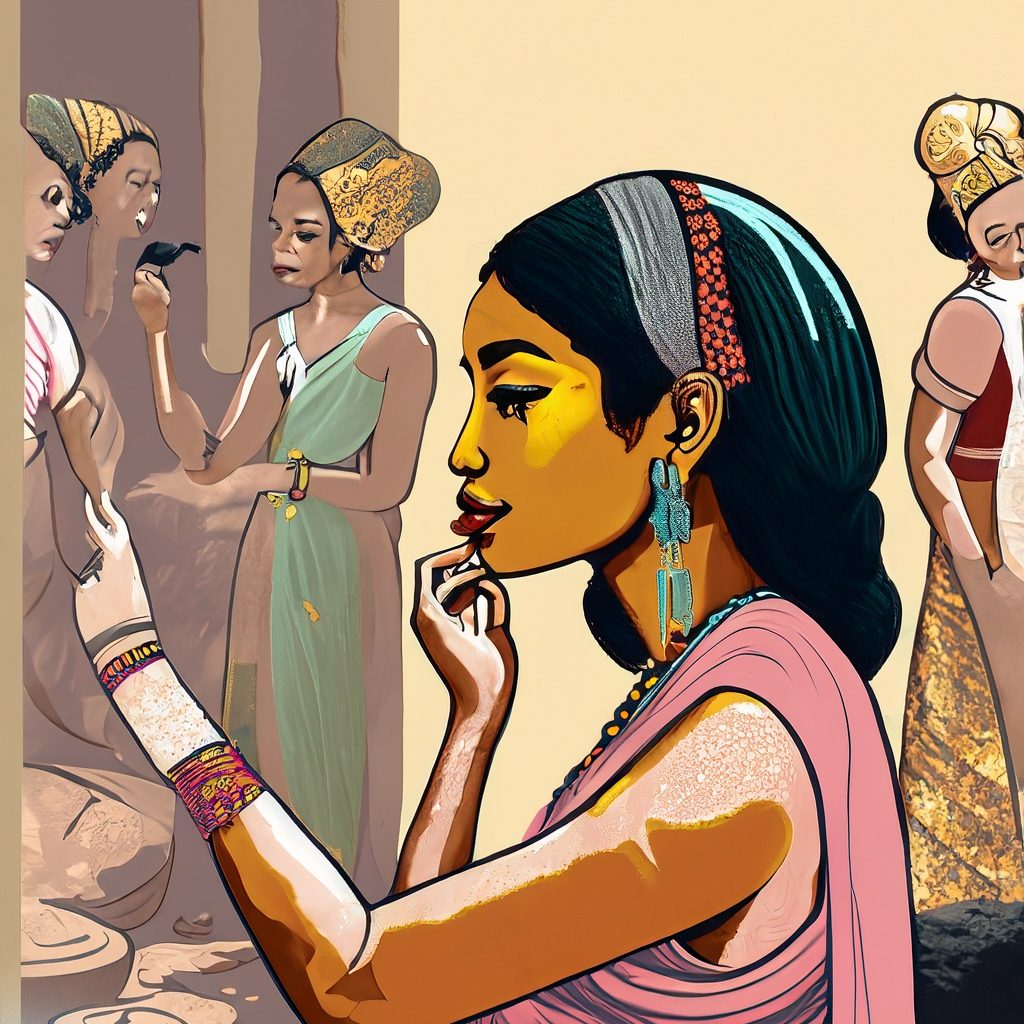
Makeup artistry is as old as civilization itself, and the profession of Makeup Artists has evolved significantly over time. Let’s journey through history to explore the evolution:
Brief History of Makeup
- Ancient Civilizations: The use of makeup can be traced back to the ancient Egyptians and Romans who used cosmetics for ceremonial and religious purposes. They used natural resources like malachite for green eyeshadow and crushed beetles for a lip tint.
- Middle Ages to Renaissance: In this period, the Church often frowned upon the use of cosmetics. Yet, lighter skin tones were favored, and various substances like white lead and mercury were used, despite their toxicity.
- 18th to 19th Century: Makeup took a backseat due to harsh social standards. However, it re-emerged towards the end of the 19th century with the arrival of beauty salons.
- 20th Century Onwards: The beauty industry saw an explosion of development, from Max Factor’s creation of foundation for film to Estee Lauder’s line of skincare and makeup. This era witnessed the evolution of makeup from simple enhancement to an avenue for self-expression.
Evolution of the Makeup Artist Profession
- Early 20th Century: The movie industry triggered the development of the Makeup Artist profession. As films transitioned from black and white to color, there was an increasing demand for makeup artists who could make actors look good on screen.
- Mid 20th Century: This era saw the rise of notable makeup artists like Max Factor, who was renowned for his work in Hollywood. His contribution was not only in makeup application but also in the creation of products that were friendly for movie lighting.
- Late 20th Century to Present: The Makeup Artist profession further diversified with the advent of TV shows, theatre, fashion shows, and personal services. Today, makeup artists are an integral part of any visual production or beauty service.
Important Historical Figures in Makeup Artistry
| Makeup Artist | Contribution |
|---|---|
| Max Factor | Known as the “father of makeup,” Max Factor revolutionized the makeup industry with his creation of flexible greasepaint for film actors. |
| George Westmore | Founder of the first-ever film makeup department in Hollywood, George Westmore played a significant role in establishing the profession. |
| Helena Rubinstein and Elizabeth Arden | They championed the concept of beauty services and products for everyday women, leading to the democratization of makeup. |
| Kevyn Aucoin | A pioneer of the “makeover,” Kevyn Aucoin was renowned for his work in fashion and his ability to transform women into glamorous versions of themselves. |
Understanding the history of makeup artistry gives us a unique perspective on how societal trends, technological advancements, and individual contributions shaped this creative profession.
Roles and Responsibilities of a Makeup Artist
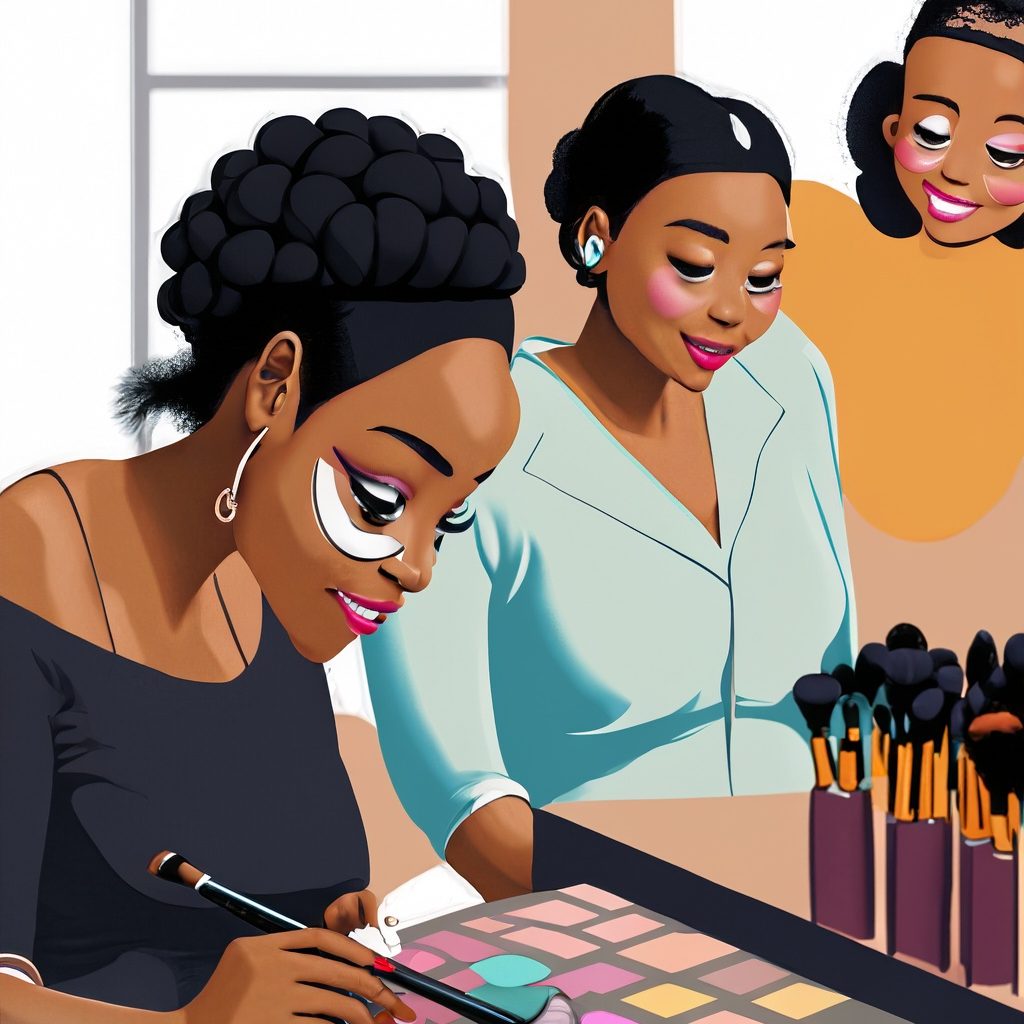
The life of a Makeup Artist goes beyond the glitz and glamour it often portrays. This profession comes with a diverse set of responsibilities:
Client Consultations
- Understanding Client Needs: The first task is usually to comprehend the client’s requirements, which can range from a natural look for a photoshoot to a dramatic character depiction in a movie.
- Analyzing Facial Features: A MUA must assess the client’s skin type, tone, and facial structure to determine the best techniques and products to use.
Creating and Applying Makeup Designs
- Designing the Look: Based on the client’s needs, the MUA sketches a design. This design serves as the blueprint for the transformation.
- Applying Makeup: The artist meticulously implements the design using various tools and makeup products. This process may involve multiple layers and a wide range of techniques.
- Maintaining the Look: During shoots or events, the MUA is responsible for touch-ups to maintain the consistency of the look.
Knowledge of Tools and Products
- Tools Proficiency: A MUA uses tools like brushes, sponges, and lash curlers. Understanding the purpose of each tool and the ability to use them effectively is vital.
- Product Knowledge: An expert MUA is familiar with a wide range of products and understands which are suitable for different skin types and desired looks.
- Hygiene Maintenance: MUAs must regularly clean their tools and ensure their products are within the expiration period to maintain a high standard of hygiene.
Administrative and Business Responsibilities
- Scheduling Appointments: In a typical day, a MUA might work with multiple clients. Keeping track of appointments and managing time efficiently is crucial.
- Building a Portfolio: A portfolio showcases a MUA’s skills and style. Keeping this updated with recent work helps attract new clients.
- Networking: Building relationships with clients, photographers, stylists, and other industry professionals can open up new opportunities.
- Marketing and Self-Promotion: For freelance MUAs, promoting their services through social media, websites, and other marketing avenues is key to growing their business.
The role of a Makeup Artist is a blend of technical expertise, creativity, and excellent interpersonal skills. They bring beauty visions to life, whether it’s for an individual’s special occasion or a character in a film.
Skills Required to be a Successful Makeup Artist
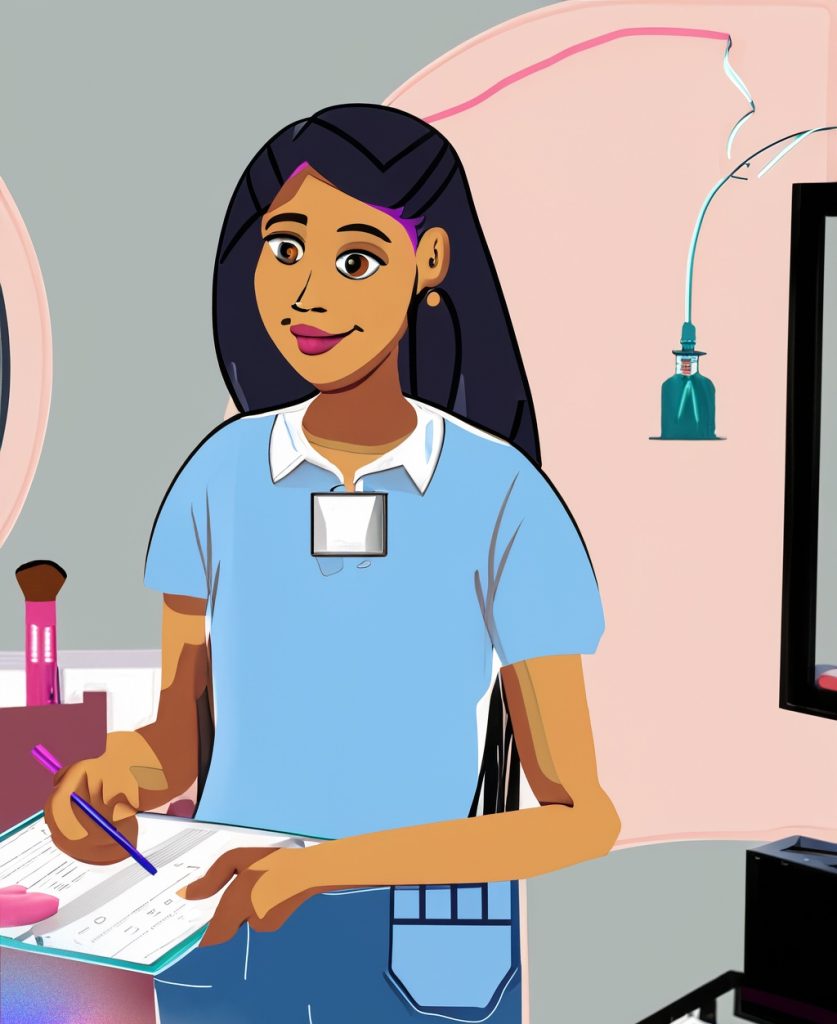
Becoming a successful Makeup Artist requires a balanced mix of technical skills, artistic talent, and soft skills. Here’s a deeper look:
Technical and Artistic Skills
- Makeup Application: The fundamental skill is applying makeup flawlessly, which requires an understanding of different techniques such as blending, contouring, and highlighting.
- Color Theory: A MUA needs to know how colors interact and how to choose the right colors for different skin tones, lighting conditions, and desired effects.
- Knowledge of Current Trends: A successful MUA stays updated on the latest trends in the beauty industry, which often involves ongoing research and training.
- Sanitation and Safety Practices: Adhering to proper hygiene and safety standards is crucial, particularly when using tools like eyelash curlers or when dealing with sensitive areas like the eyes.
Interpersonal and Business Skills
- Client Service: A MUA needs to provide excellent service to their clients, which involves listening to their needs, being patient, and maintaining a friendly demeanor.
- Communication: Clear communication is key to understanding a client’s desires and explaining the process or any potential skin reactions.
- Creativity and Vision: As an artist, the ability to visualize the final look and bring a creative vision to life is fundamental.
- Time Management: Sessions should be efficient and timely. MUAs often work under tight schedules, especially in the film and fashion industries.
- Marketing and Networking: Especially for freelancers, the ability to market one’s services, network within the industry, and build a client base is essential for growing the business.
Personal Attributes
- Attention to Detail: Precision is crucial in makeup application. A successful MUA pays close attention to detail to achieve the desired look.
- Stamina and Dexterity: The job often requires long hours standing and a steady hand for precise application.
- Passion for Beauty and Fashion: A genuine love for cosmetics, fashion, and beauty trends can drive a MUA towards continued learning and success in their field.
These skills underline the multi-dimensional nature of a Makeup Artist’s role. It is not just about the application of cosmetics, but also about understanding your client, continually learning, and managing a business.
Education and Training for a Makeup Artist
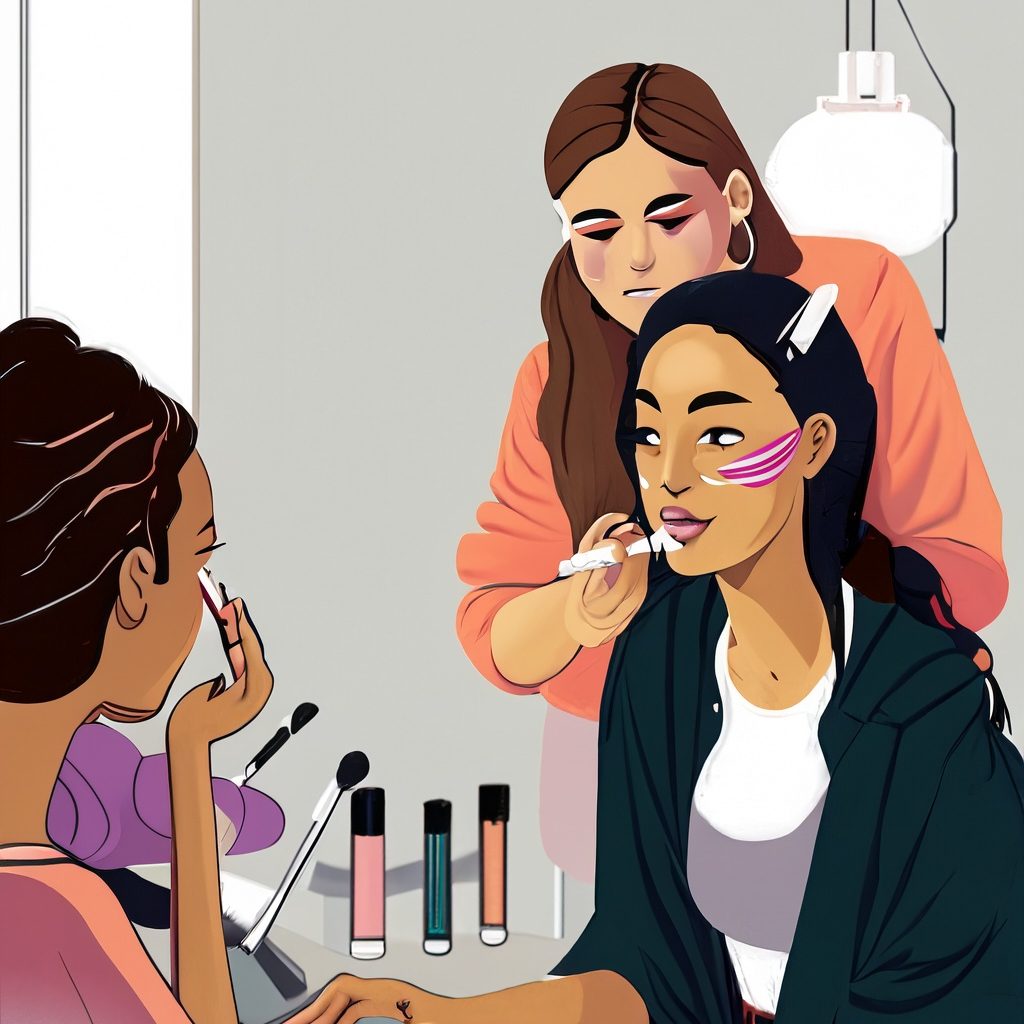
While formal education is not always a requirement to become a makeup artist, professional training can significantly enhance your skills and credentials. Here’s what the educational and training pathway might look like:
High School Education
A high school diploma is generally required to enroll in professional makeup training programs.
Professional Makeup Courses
- Aspiring makeup artists can benefit from attending a makeup artistry program at a cosmetology school or a specialized makeup school. These programs often cover a range of topics, including makeup techniques, color theory, skincare, and business skills.
- Course duration can vary widely, from short-term intensive courses lasting a few weeks to longer programs spread over several months.
- Some institutions offer certification upon completion of the course, which can enhance credibility and job prospects.
Apprenticeships and Internships
- Learning directly from a professional MUA through an apprenticeship or internship can provide valuable hands-on experience and insights into the industry.
Specialized Training
- For those interested in specific fields such as theatrical or special effects makeup, there are specialized courses available that focus on the required skills and techniques.
- Several renowned makeup brands offer product-specific training, which can be helpful for those planning to work in retail makeup.
Continuous Learning
Given the fast-paced nature of the beauty industry, ongoing learning is crucial. This could involve attending workshops, following online tutorials, or staying updated on the latest products and trends.
Licensure
In some states or countries, a license may be required to offer certain types of beauty services. It’s important to check the specific regulations in your area.
Careers in Makeup Artistry
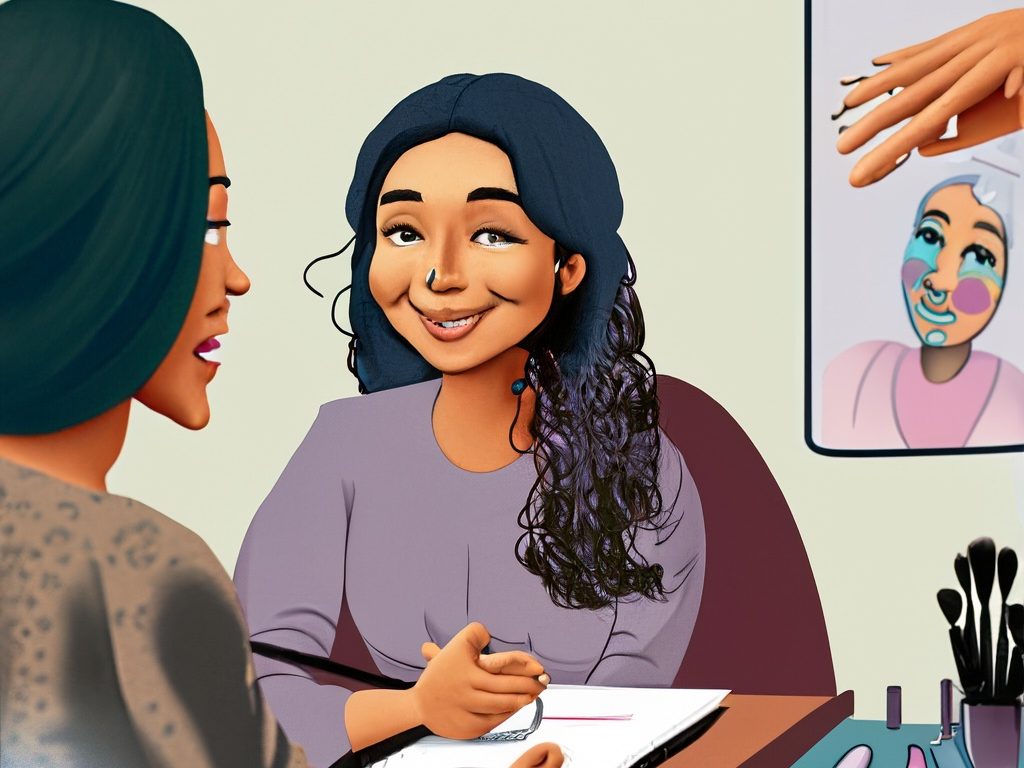
The field of makeup artistry is quite diverse, providing several career pathways depending on your interests and skills. Here’s a look at some potential career options:
Beauty/Cosmetic Makeup Artist
- These artists work in beauty salons, spas, or retail stores, helping clients enhance their personal appearance for everyday life or special events.
- They might also offer services as freelancers, providing makeup services for events such as weddings, proms, or professional photoshoots.
Theatrical/Film/TV Makeup Artist
- These artists work in the entertainment industry, designing and applying makeup for actors in films, TV shows, and stage performances.
- They might create a variety of looks, from period-accurate makeup to the transformation of an actor into a character using prosthetics and special effects.
Fashion/Runway Makeup Artist
These professionals work in the fashion industry, collaborating with fashion designers and stylists to create unique looks for photoshoots and runway shows.
Special Effects Makeup Artist
- These artists specialize in creating effects and characters for films, TV shows, or theater productions using makeup and prosthetics.
- This job often requires specialized training in areas like prosthetics, molding, and airbrushing.
Beauty Consultant or Brand Representative
- Makeup artists might work as consultants or representatives for cosmetic brands, advising customers on products and application techniques.
- This role often involves working in a retail environment and may require specific training on the brand’s product line.
Makeup Educator
With sufficient experience and expertise, makeup artists can become educators, teaching makeup artistry courses in beauty schools or offering private lessons.
Here’s a quick glance at these careers:
| Career Path | Key Responsibilities | Workplace |
|---|---|---|
| Beauty/Cosmetic Makeup Artist | Enhance clients’ personal appearance | Beauty salons, spas, retail stores, or freelance |
| Theatrical/Film/TV Makeup Artist | Design and apply makeup for actors | Film sets, TV studios, theaters |
| Fashion/Runway Makeup Artist | Collaborate to create unique looks for fashion events | Fashion shows, photoshoots |
| Special Effects Makeup Artist | Create effects and characters using makeup and prosthetics | Film sets, TV studios, theaters |
| Beauty Consultant or Brand Representative | Advise customers on products and techniques | Retail environment |
| Makeup Educator | Teach makeup artistry courses | Beauty schools, private lessons |
The world of makeup artistry is broad and exciting, offering a wide range of career opportunities. Your career path can depend on your interests, skills, training, and ambition.
Top Makeup Artists in the Industry
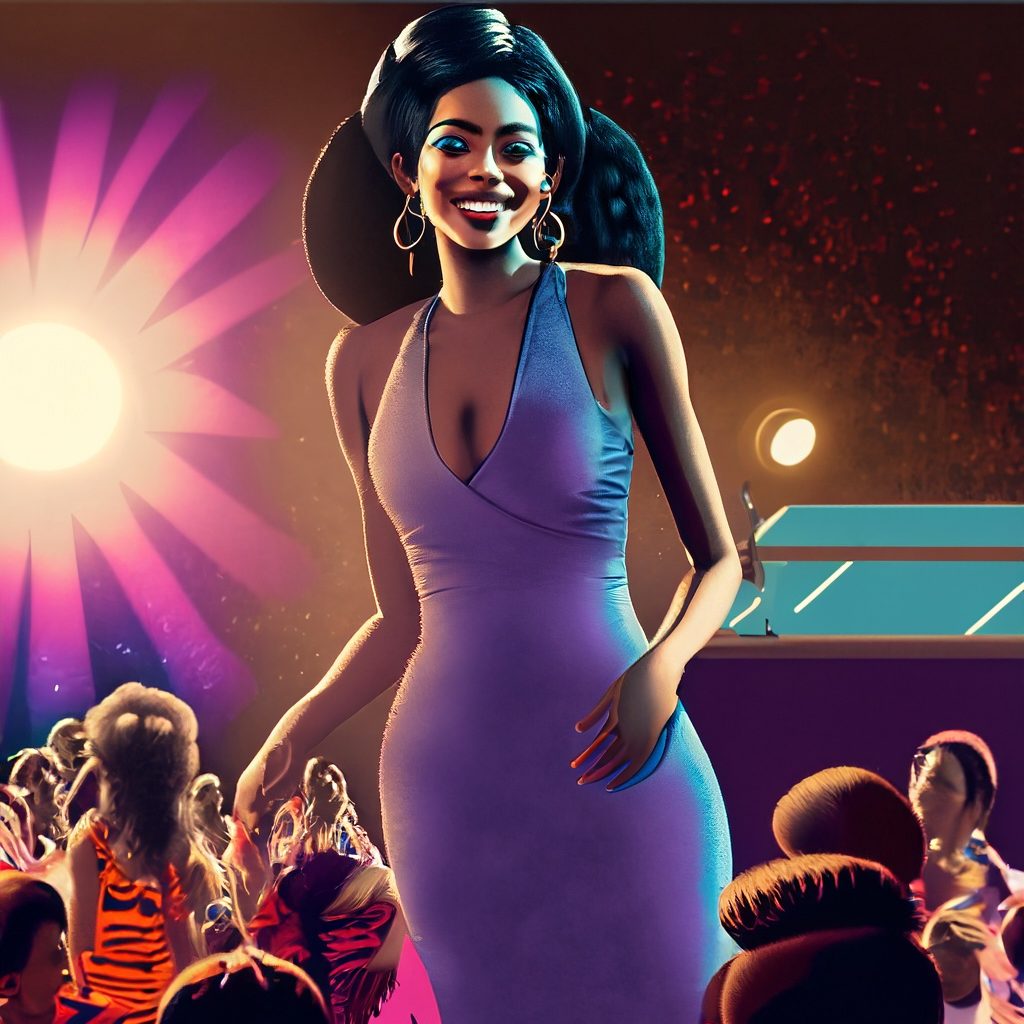
The makeup industry has seen many skilled artists who have left an indelible mark with their creative prowess. Let’s explore a few notable ones:
Pat McGrath
- Known as the “Mother of Makeup,” Pat McGrath is one of the most influential makeup artists in the world.
- She is renowned for her innovative techniques and groundbreaking product line, Pat McGrath Labs.
Bobbi Brown
- Bobbi Brown is a celebrated makeup artist and entrepreneur known for her line of cosmetics, Bobbi Brown Cosmetics.
- She emphasizes enhancing natural beauty and promoting confidence among women.
Kevyn Aucoin
- The late Kevyn Aucoin was a top makeup artist who worked with numerous celebrities and fashion icons.
- His philosophy revolved around making women look and feel beautiful.
Mario Dedivanovic
- Known for his work with Kim Kardashian, Mario Dedivanovic is a celebrity makeup artist who popularized the “contouring” trend.
- He offers master classes globally and has launched his makeup line.
Lisa Eldridge
- Lisa Eldridge is a British makeup artist and author known for her minimalist approach to makeup and her popular YouTube tutorials.
- She serves as the creative director for Lancôme and has her line of products.
These artists, among others, have made significant contributions to the beauty industry, proving that makeup artistry is more than just applying makeup; it’s about creating art, expressing individuality, and empowering people.
The Impact of Social Media on Makeup Artistry
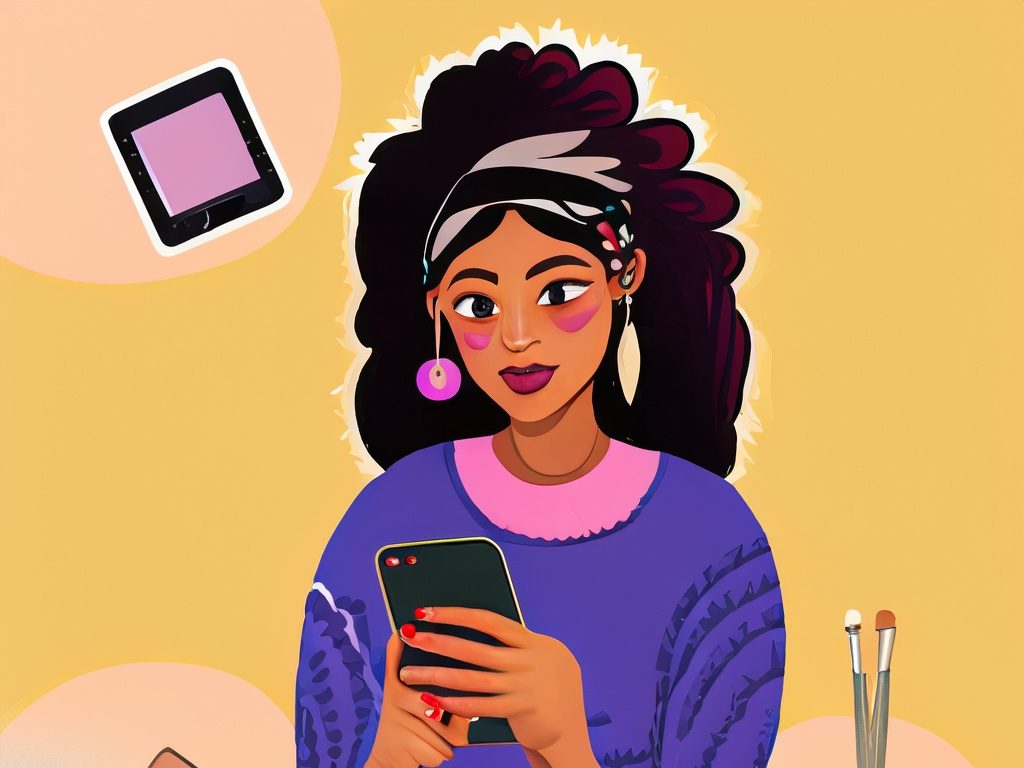
In recent years, social media has had a profound impact on the world of makeup artistry. Here’s how:
Increased Accessibility and Learning Opportunities
- Platforms like YouTube and Instagram have become virtual classrooms where anyone can learn makeup techniques, from basic to advanced levels.
- Countless tutorials, product reviews, and beauty tips are shared daily, enabling aspiring makeup artists to learn from the comfort of their homes.
Self-Promotion and Career Building
- Social media provides a platform for makeup artists to showcase their work, build their portfolios, and attract potential clients or employers.
- Many artists have used platforms like Instagram to kickstart their careers, garnering followers and attention from brands.
Influencer Culture and Collaboration Opportunities
- The rise of beauty influencers has significantly impacted the industry. Many influencers have collaborated with brands to create their makeup lines.
- This culture has provided makeup artists with new opportunities, such as becoming beauty influencers themselves or collaborating with influencers on projects.
Trend Creation and Dissemination
- Social media has become a hotbed for trend creation in beauty and fashion. Trends like contouring, strobing, and “Instagram brows” have become viral on these platforms.
- It allows makeup artists to stay on top of trends, inspire others with their interpretations, and potentially create their own trends.
Consumer Feedback and Engagement
- Social media allows for instant feedback and engagement with followers. Makeup artists can understand what their followers enjoy, answer questions, and build a community.
- This two-way communication helps artists to understand consumer behavior, preferences, and expectations, informing their practices and content creation.
Social media has revolutionized the makeup industry, empowering artists, encouraging creativity, and fostering a global community of beauty enthusiasts. The ability to adapt to and utilize these platforms can be a vital skill for modern makeup artists.
The Future of Makeup Artistry
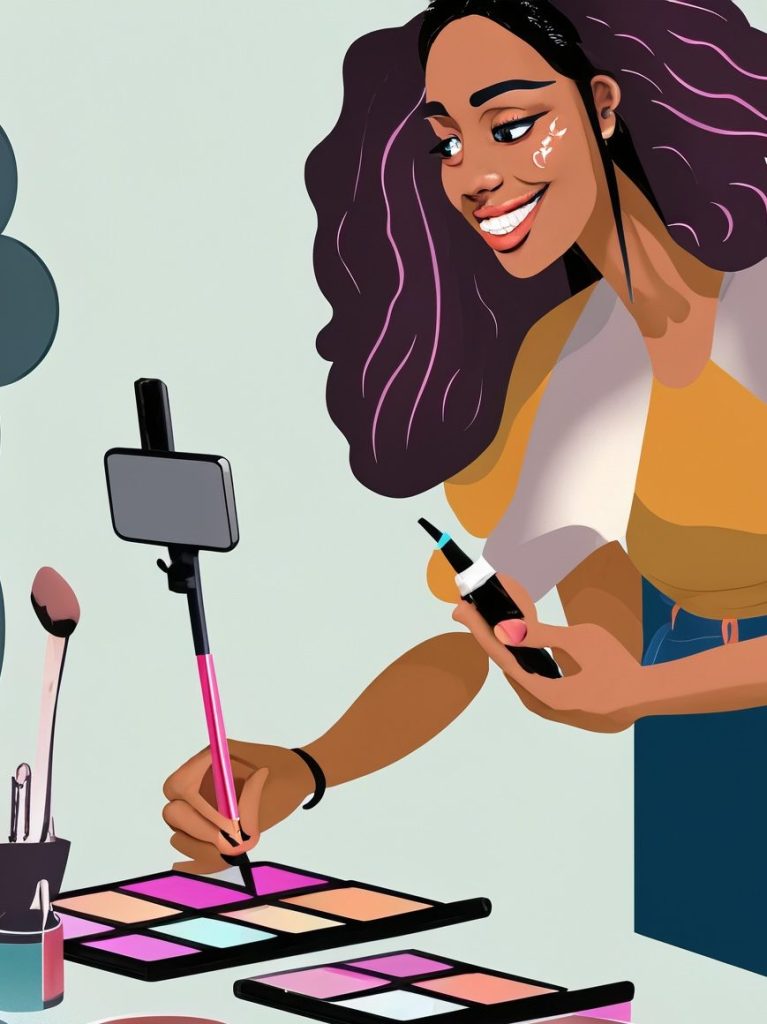
With rapid advancements in technology and evolving consumer trends, the field of makeup artistry is set to undergo significant changes. Here’s a glimpse into the possible future:
Technology Integration
- Virtual reality (VR) and augmented reality (AR) may play an increasingly prominent role. Brands might offer virtual makeup trials, and artists could use AR/VR for training or to preview a makeup look before application.
- AI-powered beauty apps could offer personalized product recommendations and makeup advice based on skin type, preferences, and other factors.
Sustainability and Ethical Considerations
- With growing awareness of environmental and ethical issues, consumers are demanding more sustainable, cruelty-free, and ethical products.
- This trend will likely continue, pushing makeup artists to familiarize themselves with such products and practices.
Inclusivity and Diversity
- The call for greater inclusivity and diversity in the beauty industry is likely to grow stronger, influencing the products makeup artists use and the broad range of clients they serve.
- Artists will need to be adept at working with diverse skin tones, types, and genders.
Holistic Beauty and Wellness
- As consumers increasingly embrace a holistic approach to beauty and wellness, makeup artists may need to expand their skill set and knowledge. This might include understanding skincare routines, providing advice on skin health, or using makeup techniques to enhance natural beauty.
- This trend could also see a rise in demand for organic and natural makeup products.
Continued Influence of Social Media
- Social media will continue to be a driving force in the industry, with influencers, user-generated content, and online tutorials shaping trends and consumer behavior.
- Live streaming and interactive content might become more prominent, providing new ways for makeup artists to engage with followers.
The future of makeup artistry is exciting and dynamic, characterized by technological innovation, ethical consciousness, and a greater emphasis on inclusivity and wellness. This evolving landscape presents both challenges and opportunities for makeup artists, who will need to stay adaptable and forward-thinking to succeed.
Conclusion
The field of makeup artistry is as vibrant and diverse as the palettes used by the artists themselves. With a plethora of career paths and niches, it offers a world of possibilities for creativity and innovation.
As we look forward to the future of makeup artistry, one thing is clear: it will continue to evolve and adapt, just like the artists it inspires. However, the core essence of this field—enhancing beauty, expressing individuality, and empowering people—will always remain.
Whether you are an aspiring makeup artist looking to start your journey or simply someone who appreciates the art of makeup, we hope this comprehensive guide has provided valuable insights into the exciting world of makeup artistry.
After all, each stroke of a makeup brush tells a story, and every face it touches is a new canvas, waiting to be transformed!
Frequently Asked Question
To understand the latest techniques and skills, opting for Makeup classes is highly recommended.
In a Major cities like Delhi, Bangalore or Pune, one can expect an average income of Rs. 8,00,000 Annually after 2-3 years of experience
A makeup artist’s primary duties include consulting with clients, applying makeup and skincare products, creating unique looks for various occasions.
